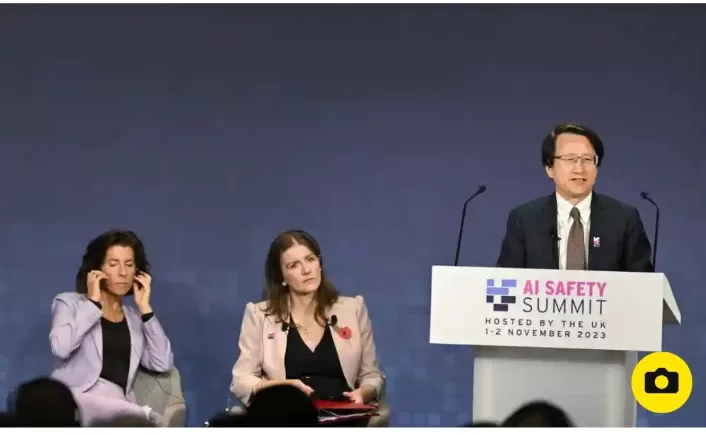Historic Bletchley Declaration Acknowledges AI’s Global Risks
In a landmark international declaration, the United Kingdom, the United States, the European Union, and China have jointly affirmed the profound and potentially catastrophic perils posed by artificial intelligence (AI). The Bletchley declaration, endorsed by 28 governments, was unveiled on the inaugural day of the AI Safety Summit, orchestrated by the British government.
The declaration, while not endorsing the establishment of an international testing hub in the UK, as some within the British government had aspired, serves as a blueprint for future global collaborations. Furthermore, it paves the way for forthcoming safety summits, slated to occur in South Korea in half a year and in France within a year.
A Stark Warning: The Catastrophic Potential of AI
The Bletchley declaration unequivocally underscores the potential for grave, even catastrophic, harm arising from the most potent capabilities of AI models, be it deliberate or inadvertent.
British Prime Minister Rishi Sunak lauded the declaration as a “landmark achievement,” underscoring that it signifies the world’s leading AI powers aligning to recognize the imperative of comprehending AI-related risks.
Michelle Donelan, the UK Technology Secretary, emphasized that for the first time, nations are uniting in agreement that a collective evaluation of the risks emanating from frontier AI is imperative. Frontier AI pertains to the cutting-edge systems that some experts believe could surpass human intelligence across a spectrum of tasks. On the sidelines of the summit, technology magnate Elon Musk issued a solemn warning, highlighting that humanity faces a unique situation where an entity “far smarter than the smartest human” looms on the horizon. He expressed doubts regarding the ability to control such an entity.
Diplomatic Triumph for the UK
The communique’s adoption stands as a diplomatic triumph for the UK and, in particular, for Prime Minister Rishi Sunak. His concerns over the unchecked advancement of AI models without adequate oversight led to the hosting of this summit.
Inaugurating the summit, Donelan emphasized that the development of AI should not be left to chance, negligence, or solely to private actors. Her address was accompanied by the presence of Gina Raimondo, the US Commerce Secretary, and Wu Zhaohui, China’s Vice-Minister of Science and Technology, showcasing a rare display of global unity.
Lingering Questions on AI Regulation
Nonetheless, there remains a notable lack of international consensus regarding the structure of global AI regulations and the responsible parties for framing them. Some British officials had aspired to secure international support to bolster the government’s AI task force, enabling it to vet new AI models from around the world before their release to the public.
However, Secretary Raimondo announced a distinct American AI Safety Institute within the US National Institute of Science and Technology, designated as a “neutral third party” to formulate top-tier standards. This institute will independently establish rules governing safety, security, and testing procedures.
The Biden administration, in a recent executive order on AI, mandated that US AI companies such as OpenAI and Google must share their safety test results with the government before unveiling their AI models. Vice President Kamala Harris, in a forthcoming speech on AI in London, is set to underscore the significance of regulating existing AI models and future advancements.
Simultaneously, the European Union is in the process of crafting an AI bill aimed at defining regulatory principles and implementing specific guidelines for technologies like live facial recognition.
Donelan intimated that an AI bill may not feature in the king’s speech next week, underscoring the necessity to comprehensively understand the problem before prescribing solutions. However, she emphasized the significance of the global summit on AI at the frontier, asserting that the UK’s pivotal role should not be underestimated.






